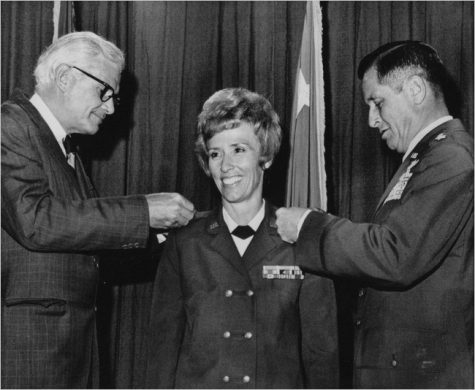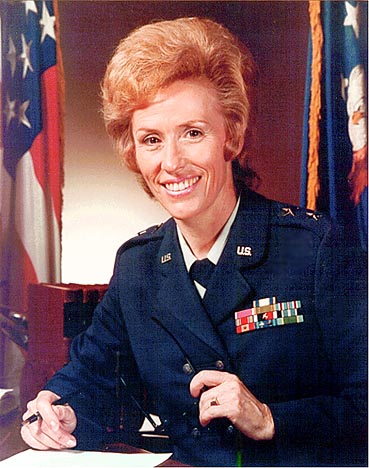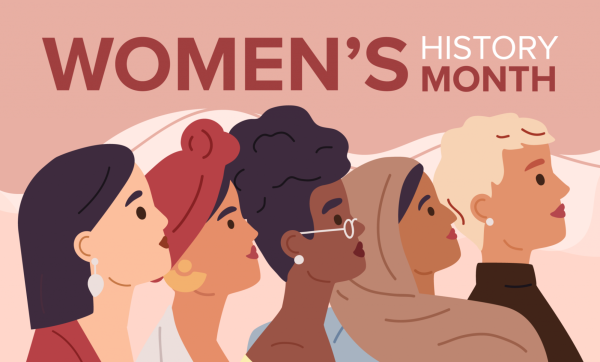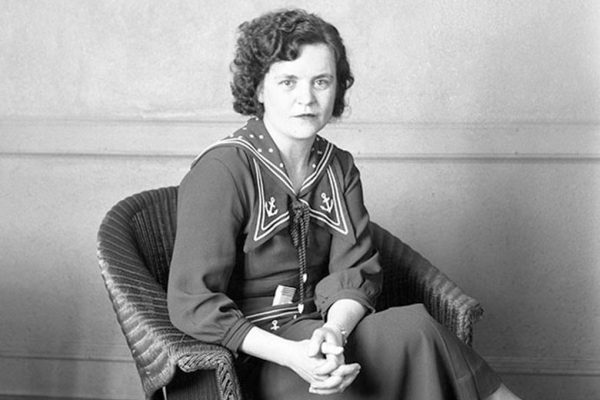Major General Jeanne M. Holm: A Revolutionary Figure for Women in the U.S. Air Force
Throughout history, the United States military has been established as a male-dominated organization — a direct result of patriarchal society’s influence. However, with the progression of time, it is evident that this prejudiced outlook began to transition, as women began to have more opportunities within the United States military. One notable trailblazer in this movement was Major General Jeanne M. Holm, who sought to provide women with the foundation and inspiration to make an impact in male-dominated fields such as the Air Force. In eliminating the limitations that were set upon women, Major General Holm’s work has made a big impact on the integration of the United States Air Force, as well as on the future generations that have come after her.
Although she started off her military career in the Women’s Army Corps in the midst of World War II, General Holm began her career in the United States Air Force in 1949, where worked as a personnel specialist throughout the Cold War. She began this new journey as the Assistant Director of Plans and Operations for the 7200th Air Force Depot Wing at Erding Air Depot in Germany, later becoming the War Plans Officer for the 85th Air Depot Wing. After being recognized for her work, she began to rise through the ranks and pursue higher level jobs and make groundbreaking achievements in the United States military. Following her deployment overseas, she became “the first woman to attend the Air Command and Staff College at Maxwell Air Force Base” and then “assigned to Headquarters U.S. Air Force in Washington, DC, as a personnel plans and programs officer in the Office of the Deputy Chief of Staff, Personnel.” Afterwards, she was assigned as the NATO Chief of Manpower in Allied Air Forces Southern Europe for four years and the Congressional Staff Officer for Director of Manpower and Organization, thus leading to her receive the Legion of Merit, which awards U.S. Armed Forces members for exceptionally meritorious conduct and outstanding service.
Being one of the very women in the military that had power at the time, General Holm demonstrated her prowess as a leader and follower within the United States military. She showed both men and women that she was capable of working hard and leading the people she worked with in fields that were often pursued by men. Not only did she help her colleagues grow, she inspired the growth and determination of many other women that came after her.
However, this feat did not end her journey. She was then appointed the Personnel of Women in the Air Force, which allowed her to make executive decisions that eliminated restrictions on women in service. Through this position, she was able to spread awareness regarding the issues surrounding the marginalization of women, ultimately providing women with a voice for their opinions and matters. Through her liaisonship, “policies affecting women were updated, WAF strength more than doubled, job and assignment opportunities greatly expanded, uniforms modernized, opening ROTC and service academies to women, and changing the policies on the status of women in the armed forces” .

General Holm’s representation of women in the Air Force ultimately boosted the morale of women, as she expanded womens’ opportunities, along with the roles that were bestowed upon them. Furthermore, she was able to contribute towards breaking the stigma and stereotypes that surrounded women at the time. With this, she was awarded the Air Force Distinguished Service Medal, which is “awarded to members of the United States Air Force who distinguished themselves by exceptionally meritorious service to the government in a duty of great responsibility, in combat or otherwise” . She was also promoted to the rank of Brigadier General in 1971 and Major General in 1973, allowing her to become “the first woman in the Armed Forces to serve in that grade”.
Preceding her retirement, she was appointed the Secretary of the Air Force Personnel Council, where she administered various boards, such as the Air Force Discharge Review Board, Personnel Board, Board of Review, etc. Thus, General Holm has played a significant role in shaping the future for women, allowing women to also have a say and influence in society. Not only did she demonstrate the power and strength that a woman can have in contribution to a corps, she showed that women are capable of shaping the future for themselves and others.
Overall, General Holm’s legacy acts as one of the primary foundations for the United States Air Force. Even after her career in the United States military, she never stopped making an effort to push for women’s rights and voices within the U.S. military, through her commitment to literature and outreach. Thus, her efforts undoubtedly transpire for future generations of women to succeed, and it is held true that “Gen. Jeanne Holm is […] the single driving force in achieving parity for military women”








































































